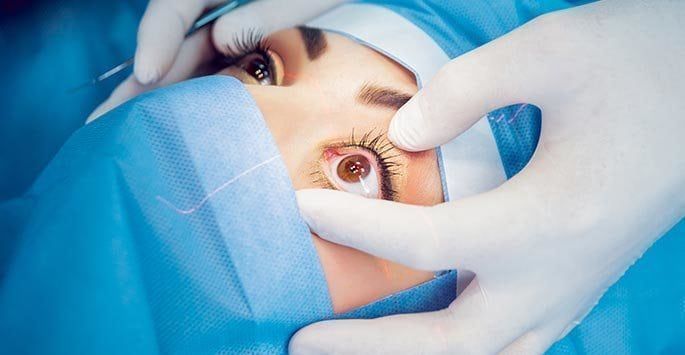A cataract is a clouding of the lens (a clear structure inside the eye). It usually develops as a normal aging process. There are several different types of cataracts depending on which part of the lens is affected. Some of the first symptoms of cataracts include glare and poor night vision (often noticed while driving). As the cataract progresses vision gets worse and reading and driving can become difficult. Treatment involves removing the cataract and placing a clear lens (intraocular lens) in its place. There are many different lens options available depending on your visual needs. The newer technology lenses can even let people see certain zones of vision without glasses after cataract surgery!
If you would like to learn more about cataracts, the American Academy of Ophthalmology also has an excellent webpage for information; just click here:
Once it has been decided that cataract surgery is the right option for you, you will return for an office visit in which many measurements are taken. This is to ensure that we choose an implantable lens that will alleviate the problems with your vision. You will speak with the doctor and the surgery scheduler that day; plan on being in the office for a couple of hours. The surgery scheduler will also arrange an actual appointment for the surgery. Nowadays the surgery is done in an outpatient setting, under local anesthesia in the vast majority of cases. You will need a family member or a friend to give you a ride on the day of surgery. The entire process on the day of surgery will take about 3 to 4 hours, but only about 20 minutes of that time is the actual operation. Drs. Greuloch and Jick perform every surgery themselves and will talk to you about what to expect. Nearly every patient reports that the surgical experience was comfortable and quite simple! After surgery you will go home and relax with a shield taped over your eye. There are some lifting restrictions that we will review with you, and you will be taking eye drops to assist the healing of the eye. There are a few postoperative visits at our office, starting on the first day after surgery.
So how does one know if they have cataracts that need surgery?
If you are having visual problems this may indeed be the case, but of course the doctor may find another cause – the only way to know for sure is to come to our office for a simple evaluation. Please call us if we can answer any questions or you feel that cataracts may be starting to be a problem for you.




